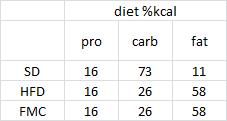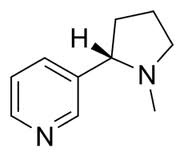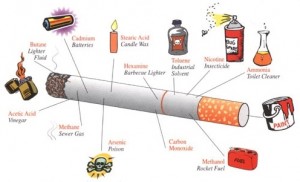NRT improves quitting success rates and reduces cessation-induced weight gain. It’s a fact; and there are a lot of anti-addictive pharmacological interventions that do too.
Dear obesity researchers, primary care physicians, and smokers,
Pay attention.
Sincerely,
Bill
Rimonabant is the anti-“munchies” drug that blocks the marijuana receptor CB1. It causes weight loss. But 20 mg daily also increases the odds of successfully quitting smoking by 50 – 60% (Cahill and Ussher, 2007).
Relevance?
Marijuana: not really addictive.
Obesity diets: delicious, but not really addictive.
Cigarettes: definitely addictive.
Rimonabant: anti-addictive. It causes weight loss in overweight but not lean people, perhaps because lean people don’t eat obesity diets (?).







